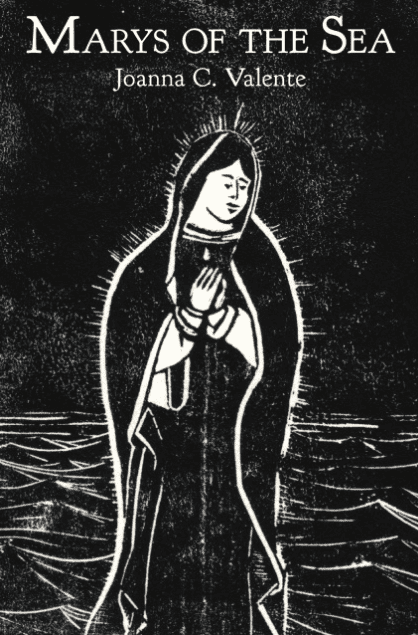|
The Breadcrumbs widget will appear here on the published site.
"The Frightening Fluency of Creation": Joanna Valente's Marys of the Sea is so Human, It's DivineWith the stormy political forecast, I don’t know of a better time I could have picked up Joanna Valente’s Marys of the Sea. Growing up with conservative and evangelical rhetoric, magic was considered a highly dangerous threat. To so many traditional politicians among others wanting to silence the narratives of women, Valente’s collection is their nightmare, as Jonathan Papernick (author of The Book of Stone) describes the authoress as “a sorceress who wields language with the frightening fluency of Creation.” Indeed, it doesn’t take long to be enchanted by the collection, starting with the gorgeous cover illustration that mimics holy imagery. Perhaps Valente’s words are so dangerous because she challenges the traditional narratives of the Bible, suggesting a stronger feminine presence in the spiritual realm than too many want to admit. The opening of her collection references the Gospel of Mary, a presumably 2nd century text that challenges a woman’s subservience to a man with examples of the most praised woman in biblical history: the Virgin Mary. The gospel is also debated to portray Mary Magdalene, another one of Jesus’ followers. Whichever Mary it may be, the Marys of Valente’s 53 poem collection describe the rawness of sexual violence and trauma from the aftermath. “Creation Myth” immediately questions the very essence of our purpose and the lies we are fed to excuse heinous behavior with, “Self-control is difficult for humans: / our hearts still primitive.”
The collection also details the heart-wrenching decision of terminating pregnancy, documenting a chance of properly meeting the same soul later in “American Express.” It begins with, “It was a pill / that shifted you / from my womb / to homeless,” and compares the decision to a credit transfer resulting in an empty uterus. Later, the speaker promises, “Ten years from now / a transfer will occur / from debit acct / to my credit. / I hope it will be you / no longer lost / on the streets of / Not Ready Yet.” But even with a comforting analogy, “Mittelschmerz” (German for ‘moderate pain’) suggests a looming doubt and persistent regret, but resolves with a reminder that the soul will return, noting, “When I’m ready, / my uterus will lunar eclipse. / You could have been / my baby. I was almost your mother. / In the gap, I left you to fall— / jarred starlight, steaming.” Overall, every poem reveals the truths rarely told in political discourse, more than likely because it is too human to swallow. Valente’s important and essential collection is available from ELJ Publications now. CommentsComments are closed.
|
|








